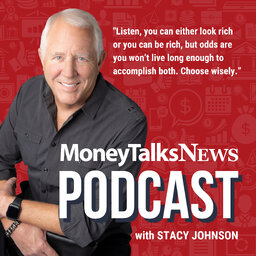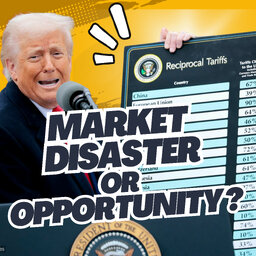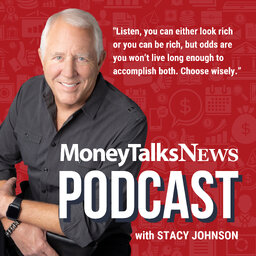Predictions for stocks, rates and housing for 2025 and How Trump Could Change Everything
Markets are moving. Politics are pivoting. Economic uncertainties are escalating.
Trump's return could reshape America's financial landscape from Wall Street to Main Street.
Will tariffs trigger inflation? Can markets maintain momentum? How will immigration policies impact labor costs?
We're diving deep into these crucial questions on this year-end podcast. It's essential intelligence for your investment decisions.
Stay smart. Stay strategic. Stay subscribed.
Because knowledge isn't just power - it's profit.
For more market-moving insights, subscribe to the Money Talks News newsletter and join our YouTube channel today. Your portfolio will thank you!
Make new friends! Join the MTN Facebook Retirement Group
Click to watch: Predictions for Stocks, Rates and Housing for 2025 and How Trump Could Change Everything
Add "Money Talks News: The Podcast" to your favorite player!
- MTN | Youtube
- MTN | Apple Podcasts
- MTN | Spotify
Love growing your wealth? You'll enjoy these courses.
- Take our course The Only Retirement Guide You'll Ever Need
- Take our course Money Made Simple
Chapter Markers:
0:00 - Introduction
3:33 - Stock Market Predictions
6:02 - Interest Rate Forecasts
8:53 - Housing Market Outlook
9:20 - Oil Price Projections
10:38 - Trump Policy Impact Analysis
13:24 - Immigration Effects on Economy
15:30 - Closing Thoughts & Contact Info
In 1 playlist(s)
Money Talks News: The Podcast
Welcome to Money Talks News: The Podcast, a podcast devoted to everything money: how to get it, how …Social links
Follow podcast
Recent clips

Recession or Rally? Why Are Markets Rising Despite Trump's Tariffs?
25:32

Is Trump Really a “Stable Genius”? Don’t Bet Your Retirement On It
20:38

I've Been Investing for 40+ Years: Here's What to Do When the Market Is Tanking
05:19
 Money Talks News: The Podcast
Money Talks News: The Podcast